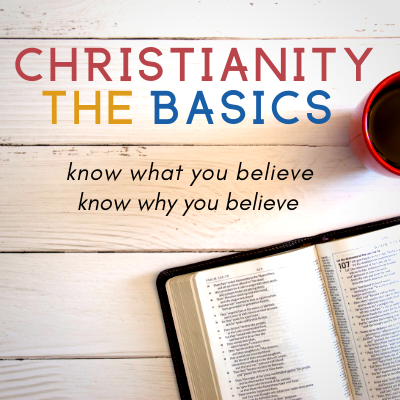SERMON SUMMARY
The Apostles’ Creed is one of the oldest summaries of biblical doctrine that we have. (Note: it was not written by Jesus’ twelve Apostles, but it reflects the faith of the church immediately after the Apostles passed off the scene.) The Apostles’ Creed begins with the words “I believe…” and derives its name from the first word in the Latin version: credo. It contains twelve foundational affirmations of the Christian faith (see today’s Talking Points for the complete Apostles’ Creed). Today fewer and fewer people believe in God and religion—so what is the future of the Christian faith in a world where fewer people believe? Acts 17 helps us answer this question. Athens, Greece, was the intellectual center of the Roman world—it was like Oxford, Cambridge, and all of the Ivy League schools all rolled into one. Belief in the old Roman god’s was being challenged there. Skepticism ruled the day.
Everyone is deeply religious, whether they admit to it or not (v. 22). People may not be formally religious (they may not go to church), but we all have deeply held faith axioms which are unprovable. Human beings demand answers to questions such as: “Why are we here?’, “Is there an afterlife?”, “What’s gone wrong with the world and how can things be made right?” No one can live without at least tentative answers to these questions. But the answers to all of those questions are “beliefs”; they can’t be proven in a laboratory. Even those who say there is no god, can’t prove it; they can’t prove that there’s no afterlife. They take a leap of faith. They’re betting their lives, their eternal destinies, on their beliefs.
Yet most secular people believe in human rights—but why?! If you ask a secular person, “Where did human beings come from?” they’ll point to evolution, the survival of the fittest. But now they believe that we must stop all of that! Stronger individuals must not take advantage of weaker individuals. They’re being inconsistent. “Man descended from apes. Therefore, let us love one another.” If we are the product of the survival of the fittest, why should we love one another? Yet the secularist still believes that we should. Secular beliefs are not self-evident and cannot be proven empirically. Secular beliefs also have real problems associated with them. Too often what is considered “science” today is considered fiction tomorrow. Science is not the objective discipline that it is often believed to be. It is fraught with unproven presuppositions and personal biases. I’m not being anti-science, but we must not accept its conclusions uncritically. No one can operate without a set of unprovable beliefs. Secularists are every bit as reliant on faith as are religious people—they just don’t realize it!
Paul “reasoned” with these Greek philosophers (v. 16-17). Because he was dealing with people with a deeply different worldview, he didn’t begin by preachingspel. He entered into a dialogue with them, trying to think like them, to enter into their world, to see things from their perspective. Then he was in a position to criticize their worldview from its own premises, and presuppositions. Paul challenged them to have a God-sized god (v. 23). Their “altar to an unknown god” revealed that they sensed that their worldview was inadequate. In our world today, Paul would probably begin by showing gaps in our moral sensitivities. For example, Dr. Richard Shweder from the prestigious University of Chicago argued that we must not judge the Afghan practice of pederasty (see Wikipedia). He said that we have no right to say it’s wrong. But that’s hypocritical. We’ve all heard someone say: “No one has the right to tell other people what is right or wrong for them. If I don’t have the right to tell you what is right or wrong for you, then how can you tell me that I’m being wrong?” Unless you believe that there’s a God, you must stop talking about right and wrong. If there is no God, you cannot explain moral obligation. But no can live this way! Your worldview is too small for your own moral intuitions. So Paul introduces us to a God who is big enough for our moral intuitions (v. 24-29). They sneered at Paul and called him an intellectual light-weight (v. 18), but today billions worship Jesus. Do you know anyone who worships Zeus or Apollo? Jesus’ resurrection answered the problem of suffering that Greek philosophy couldn’t. The radical message of Christianity transformed the world! Do you have God-sized beliefs that are big enough to support your moral intuitions, and do you have a heart-shaped hope big enough to satisfy your deepest desires? Paul went into the marketplace of ideas and he dialogued. He wasn’t afraid of being called names. We shouldn’t be either.
APPLICATION / CHALLENGE
- Let’s put some shoe leather on our beliefs; let’s be the light of the world!
- For the glory of God and the salvation of mankind, walk in Jesus’ footsteps.
- Plunge into the marketplace and build redemptive relationships with those you meet.
TAKE ONE STEP
Each week, write down one doable concrete step of obedience, small or large, that you will put into practice this week. (James 1:22: “But prove yourselves doers of the word, and not merely hearers who delude themselves.”)


